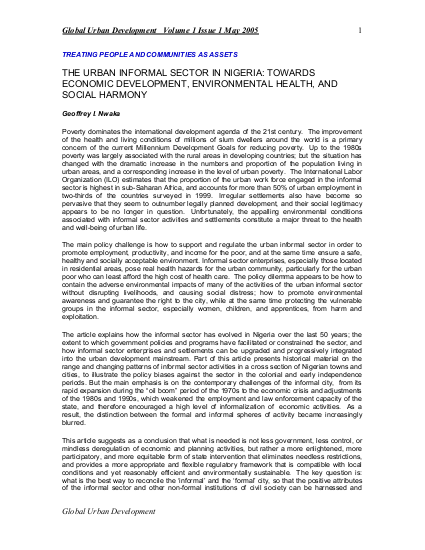
The article explains how the informal sector has evolved in Nigeria over the last 50 years; the extent to which government policies and programs have facilitated or constrained the sector, and how informal sector enterprises and settlements can be upgraded and progressively integrated into the urban development mainstream. Part of this article presents historical material on the range and changing patterns of informal sector activities in a cross section of Nigerian towns and cities, to illustrate the policy biases against the sector in the colonial and early independence periods. But the main emphasis is on the contemporary challenges of the informal city, from its rapid expansion during the “oil boom” period of the 1970s to the economic crisis and adjustments of the 1980s and 1990s, which weakened the employment and law enforcement capacity of the state, and therefore encouraged a high level of informalization of economic activities. As a result, the distinction between the formal and informal spheres of activity became increasingly blurred.
Resource collections
- UN Habitat - Urban Response Collection
- Urban Response - Urban Crisis Preparedness and Risk Reduction
- Urban Response Collection - Community Engagement and Social Cohesion
- Urban Response Collection - Economic Recovery
- Urban Response Collection - Environment and Climate Change
- Urban Response Collection - Housing, Land and Property
- Urban Response Collection - Urban Crisis Response, Recovery and Reconstruction
- Urban Response Collection - Urban Resilience